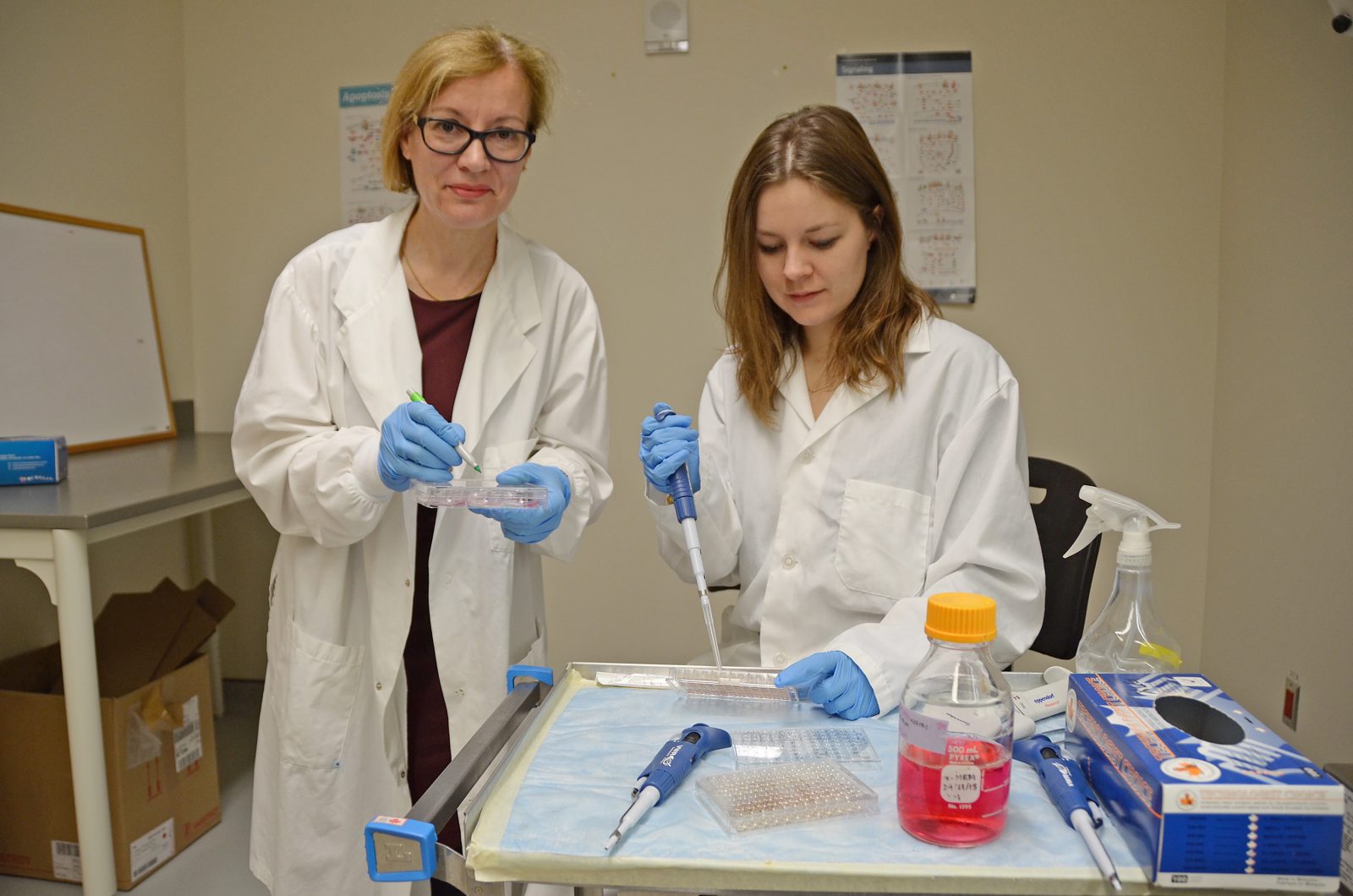People who jog or walk in the upcoming Terry Fox Run at Brock University will be fighting cancer in more ways than just raising funds for research.
Recent Brock University research has suggested exercise may slow down — and even prevent — the growth of certain types of lung cancer cells.
“This study supports the idea that exercise is good for us and, indeed, may contribute to the reduction of the risk of cancer,” says Evangelia Litsa Tsiani, Associate Professor of Health Sciences and research team co-ordinator.
In their study, the researchers used human lung cancer cells that represent a type of cancer called non-small cell lung cancer, an especially harsh and aggressive disease that accounts for up to 85 per cent of all lung cancer cases. These and other cancer cells multiply quickly and are able to survive at much higher rates than normal cells.
Blood samples were drawn from a group of young men before and after they had exercised vigorously. From these samples, the researchers extracted serum, the clear, yellowish liquid part of blood that contains all blood components except blood cells.
The team then exposed the cancer cells to pre- and post-exercise serum.
The researchers found that the lung cancer cells that had been exposed to post-exercise serum not only had reduced growth, but their long-term survival greatly decreased when compared to cells exposed to pre-exercise serum.
In the exercise study, Tsiani and her team found that the post-exercise serum:
- Stopped the survival and multiplication of cancer cells and enhanced the process of apoptosis, or pre-programmed cell death
- Blocked a signalling pathway called Akt that would have caused the cancer cells to multiply
- Stopped certain proteins in the cancer cells from being activated
“The importance of this study is that, at the molecular level, the inhibition that we see with this post-exercise serum is very significant, comparable to what chemotherapy drugs are able to accomplish,” says Tsiani.
The team has not yet identified the specific substance in the post-exercise serum – hormones, proteins, among others — that slowed and stopped the growth of the cancer cells. Tsiani says identifying that substance is the next step of the research.
The research team’s findings are in their paper, “Inhibition of Human Lung Cancer Cell Proliferation and Survival by Post-Exercise Serum Is Associated with the Inhibition of Akt, mTOR, p70 S6K, and Erk1/2,” published June 2017 in the journal Cancers.
Graduate student Nigel Kurgan is first author on that paper. Other researchers include Professor of Kinesiology Panagiota Klentrou and graduate students Kurgan, Evelyn Tsakiridis, Rozalia Kouvelioti and Jessy Moore.










